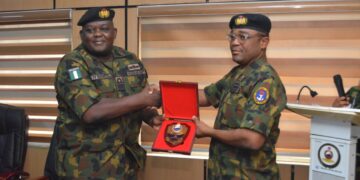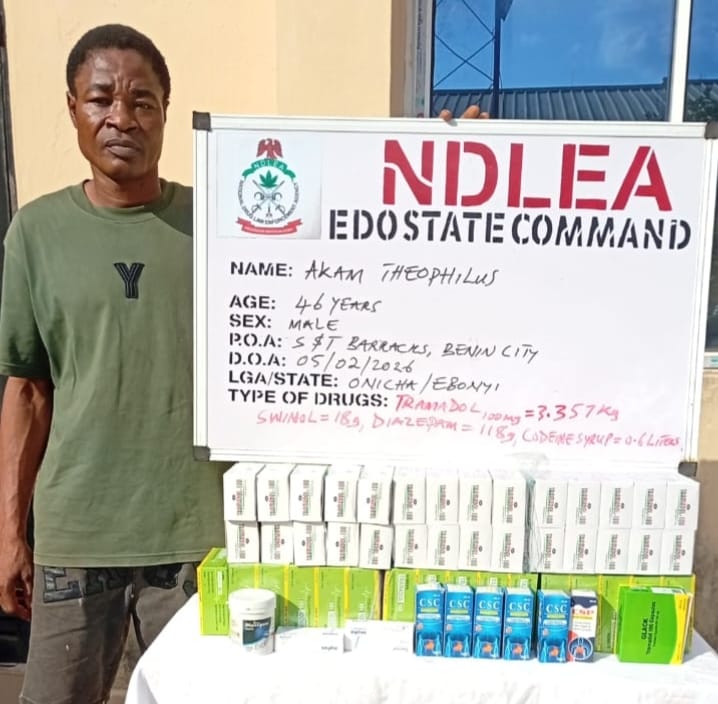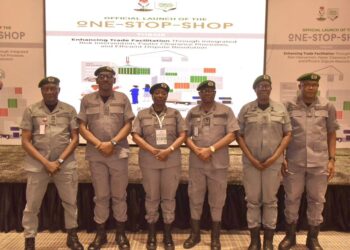Deputy Comptroller Malanta Yusuf, who is in charge of
the Automated System of Customs Data (ASYCUDA) at the Apapa Area Command of the
Nigeria Customs Service, says automation has facilitated easy goods clearance
documentation process.
the Automated System of Customs Data (ASYCUDA) at the Apapa Area Command of the
Nigeria Customs Service, says automation has facilitated easy goods clearance
documentation process.
In an interview in Lagos on Wednesday, Yusuf said
that a number of processing complaints resulted from the incorrect declarations
that people made.
that a number of processing complaints resulted from the incorrect declarations
that people made.
He said that
unlike what obtained during the analogue processing system; automation had
permanently thinned the crowd at the processing area, except for those with
special reasons to be there.
unlike what obtained during the analogue processing system; automation had
permanently thinned the crowd at the processing area, except for those with
special reasons to be there.
“Automation is
real time. When you look at it, we have come a long way from Bill of Entry , to Single Goods Declarations, to Pre-shipment inspection, to
Destination Inspection, where we started our operation with 2.7 ASYCUDA, which is
an analogue system.
real time. When you look at it, we have come a long way from Bill of Entry , to Single Goods Declarations, to Pre-shipment inspection, to
Destination Inspection, where we started our operation with 2.7 ASYCUDA, which is
an analogue system.
“When we perfected with that, we’ve gone to ASYCUDA
++, which is more of digital and from there, we have come down to ASYCDA 2.0.
With that again, we have digitalised, whereby we can do e-commerce; e-payment,
e-manifest, paperless transactions.
++, which is more of digital and from there, we have come down to ASYCDA 2.0.
With that again, we have digitalised, whereby we can do e-commerce; e-payment,
e-manifest, paperless transactions.
“In the whole of customs commands it has eased up the
operation, particularly when it comes to the issue of document of processing.
operation, particularly when it comes to the issue of document of processing.
“In those days you see what is called the long room, when
you go there, for you to even pass was difficult because more than 100 people
would be inside there.
you go there, for you to even pass was difficult because more than 100 people
would be inside there.
“If you go to long room now you cannot see 10 to 15
people, and all these people are for fast-track or to do error resolution,” he
said.
people, and all these people are for fast-track or to do error resolution,” he
said.
The deputy comptroller added that the command usually
treated issues of clearance processing error based on their merits and how they
could be best handled.
treated issues of clearance processing error based on their merits and how they
could be best handled.
He said some problems may be from the shipping
company, port of origin or the manifest itself or the bill of lading.
company, port of origin or the manifest itself or the bill of lading.
While according to him, some could result from data
capturing, or from the e-payment or the bank or from documentation itself.
capturing, or from the e-payment or the bank or from documentation itself.
Yusuf established that the customs automation system
was best for its clearance processing operations, with the support of honest
declaration by the clearing agents or the importers themselves.
was best for its clearance processing operations, with the support of honest
declaration by the clearing agents or the importers themselves.

































































